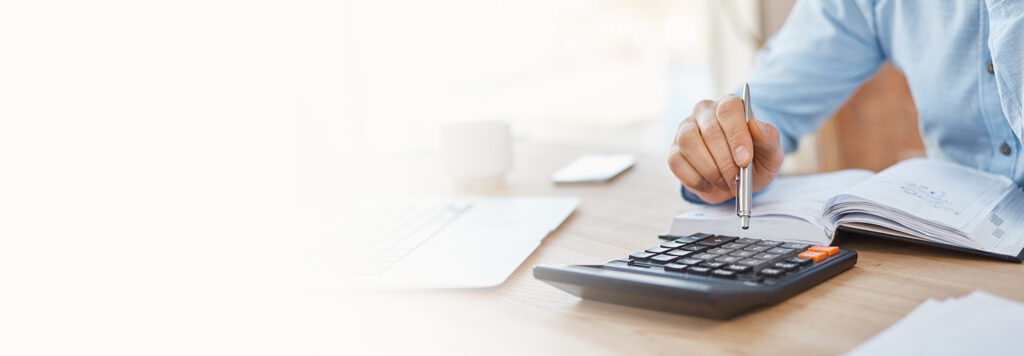Every salaried individual, working and earning a monthly income, is liable to pay a certain part of his/her earnings to the respective state governments in the form of professional tax. This tax, often referred to as P tax, is reflected in an individual’s salary slip as well. An employer directly deducts this tax amount from an employee’s monthly income before handing out the remuneration.
Apart from salaried employees, professionals cab pay it directly to the state government. They can also claim a tax deduction for this tax paid during the financial year as per the Income Tax Act 1961.

What is Professional Tax?
Professional tax is a tax charged by the state government on anyone who earns money through a job, business, or profession. It doesn’t just apply to doctors or other specific professionals, it applies to all earning individuals.
This tax must be paid by everyone who earns an income. The amount and how it is calculated can vary from state to state, but it cannot be more than Rs.2500 per year.
Where is Professional Tax Applicable?
Since the state governments decide the quantum of this taxation, it tends to differ between the various states in India. Therefore, an individual employed in Gujarat will not pay the same amount of professional tax as another person employed in Maharashtra.
Self-employed individuals, such as chartered accountants, doctors, lawyers, and others also need to bear the professional tax. However, in these cases, the professionals will need to clear their tax liabilities on their own. The tax rate applied depends on the individual’s income and state of practice.
What is the Professional Income Tax Limit?
The professional tax was introduced in 1949. At that time, the limit for this tax was set at Rs.250. However, in 1988, the limit was increased by Rs.2500. The exact liability, however, depends on the employee’s income slab and state of employment. However, regardless of these two factors, professional tax for a month cannot exceed Rs.2500.
Who collects PT?
The Commercial Tax Department is responsible for collecting this tax. Individuals who are employed at a firm or business need not pay this tax separately since it is already deducted by the employer and cleared on behalf of employees.
Moreover, if the employer is a person, instead of being an entity, he/she is liable to bear professional taxes on profession or trade as well.
To charge and pay taxes, employers need to register for two specific certificates. These are –
- Professional tax registration certificate – This is a document certifying the employer to pay professional tax on his/her business or trade.
- Professional tax enrolment certificate – This is another document that authorises an employer to deduct professional tax from his/her employees for the sole purpose of clearing the liabilities with the state government.
FAQs
How do I know the Professional Tax rate in my state?
Professional Tax rates and rules vary from state to state. You can refer to the official website of your state’s commercial tax department or visit a local tax office for specific information regarding the rates and exemptions applicable in your region.
Can Professional Tax be claimed as a deduction?
Yes, Professional Tax paid can be claimed as a deduction under Section 16(iii) of the Income Tax Act for salaried individuals. This deduction is available from the gross income before calculating taxable income.
Practice area's of B K Goyal & Co LLP
Income Tax Return Filing | Income Tax Appeal | Income Tax Notice | GST Registration | GST Return Filing | FSSAI Registration | Company Registration | Company Audit | Company Annual Compliance | Income Tax Audit | Nidhi Company Registration| LLP Registration | Accounting in India | NGO Registration | NGO Audit | ESG | BRSR | Private Security Agency | Udyam Registration | Trademark Registration | Copyright Registration | Patent Registration | Import Export Code | Forensic Accounting and Fraud Detection | Section 8 Company | Foreign Company | 80G and 12A Certificate | FCRA Registration |DGGI Cases | Scrutiny Cases | Income Escapement Cases | Search & Seizure | CIT Appeal | ITAT Appeal | Auditors | Internal Audit | Financial Audit | Process Audit | IEC Code | CA Certification | Income Tax Demand Notice | Psara License | FCRA Online
Company Registration Services in major cities of India
Company Registration in Jaipur | Company Registration in Delhi | Company Registration in Pune | Company Registration in Hyderabad | Company Registration in Bangalore | Company Registration in Chennai | Company Registration in Kolkata | Company Registration in Mumbai | Company Registration in India | Company Registration in Gurgaon | Company Registration in Noida | Company Registration in lucknow
Most read resources
tnreginet |rajssp | jharsewa | picme | pmkisan | webland | bonafide certificate | rent agreement format | tax audit applicability | 7/12 online maharasthra | kerala psc registration | antyodaya saral portal | appointment letter format | GST Search Taxpayer | caro 2020 | Challan 280 | itr intimation password | internal audit applicability | preliminiary expenses | mAadhar | e shram card | aaple sarkar portal | epf activation | scrap business | brsr | depreciation on computer | west bengal land registration | traces portal | Directorate general of GST Intelligence | form 16 | rtps | patta chitta
